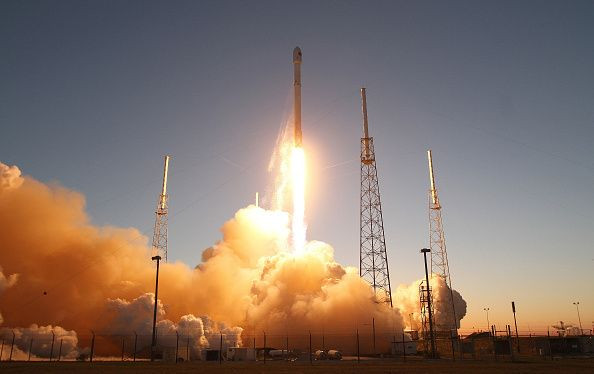Elon Musk: SpaceX 'Complacency' Contributed To Falcon 9 Crash, Falcon Heavy Rocket Debuts In 2016

The SpaceX rocket launch that ended in a fiery explosion June 28 didn't fail only for mechanical reasons. Sure, a faulty steel strut contributed to the problem, but founder Elon Musk also admitted his rocket company's success might have contributed to the high-profile failure.
“It's the first time we've had a failure in seven years so, to some degree, the company as a whole got a little complacent,” Musk said during a post-mortem conference call Monday. “Especially with all the successes in a row, I think this is an important lesson and something we'll take with us into the future. When you only experience success, you don't learn to fear failure.”
Musk was referring to the launch three weeks ago when SpaceX's Falcon 9 rocket exploded just minutes after liftoff. Excitement surrounded the launch because SpaceX was trying to land the first stage of the rocket onto an autonomous floating barge in the Atlantic Ocean, with the ultimate intent to reuse the rocket.
Now, with another flight scheduled for August, SpaceX says it won't fly again “before September” and the long anticipated Falcon Heavy rocket won't be unveiled until next year at the earliest.
“Preliminary analysis suggests the overpressure event in the upper stage liquid oxygen tank was initiated by a flawed piece of support hardware [a strut] inside the second stage,” SpaceX said in a statement Monday. “Several hundred struts fly on every Falcon 9 vehicle, with a cumulative flight history of several thousand. The strut that we believe failed was designed and material certified to handle 10,000 [pounds of] force, but failed at 2,000[pounds], a five-fold difference.”
© Copyright IBTimes 2025. All rights reserved.



















